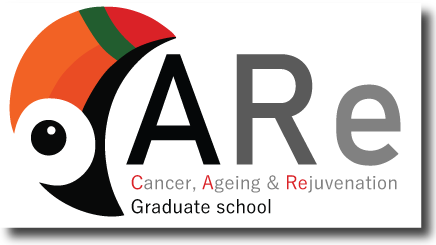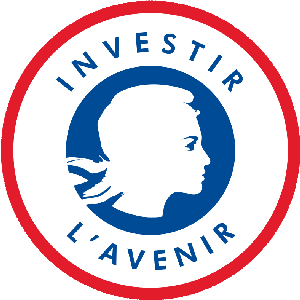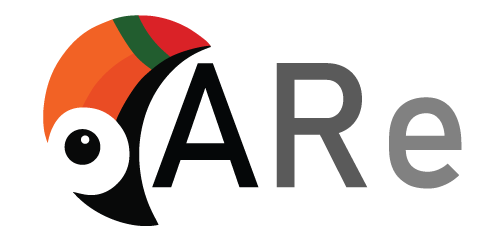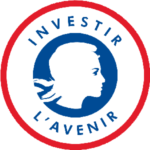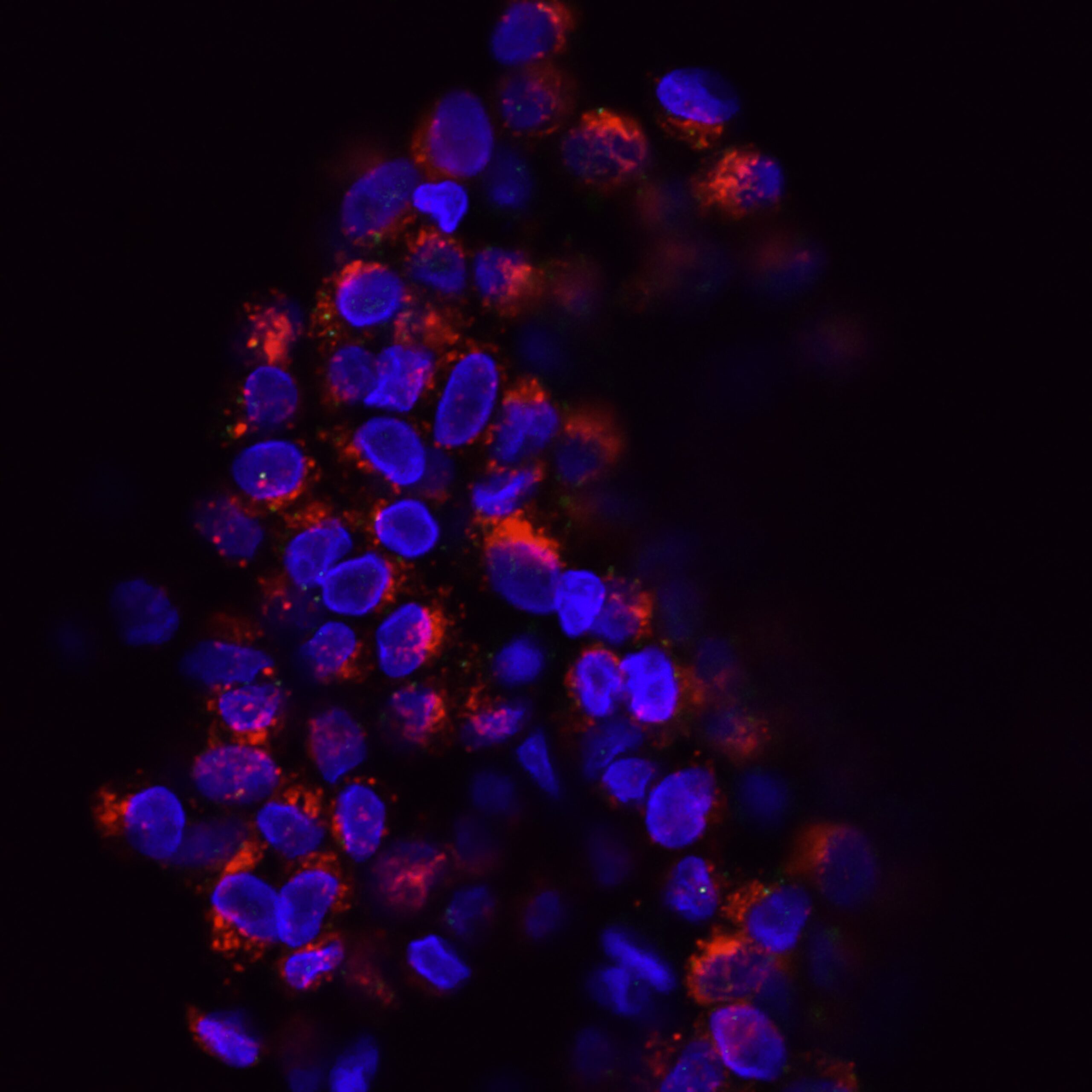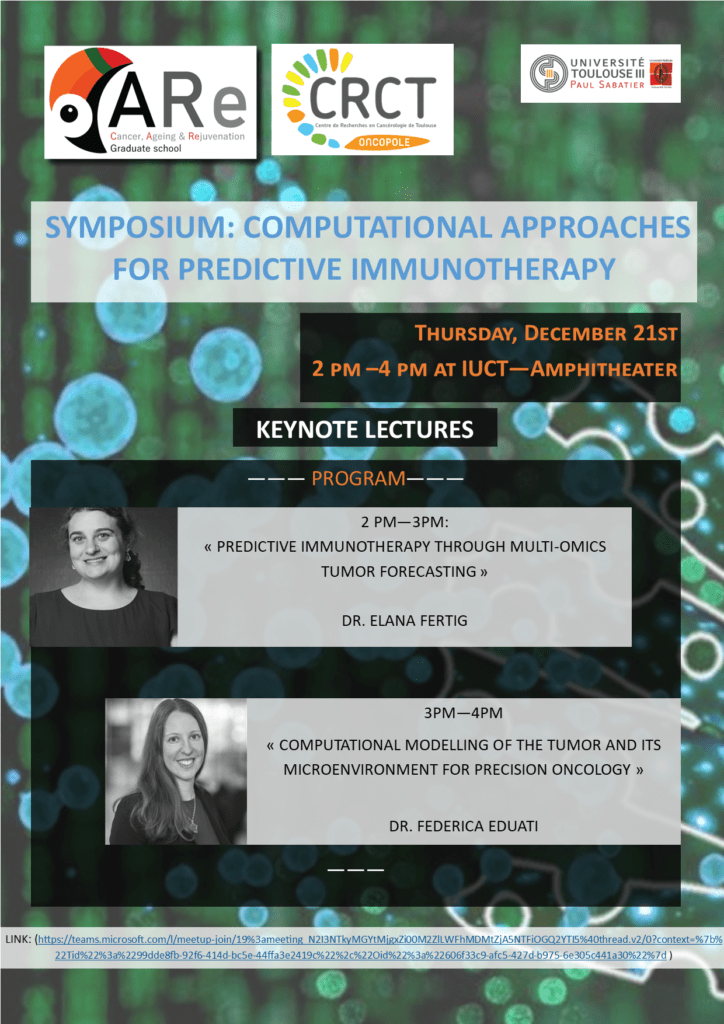
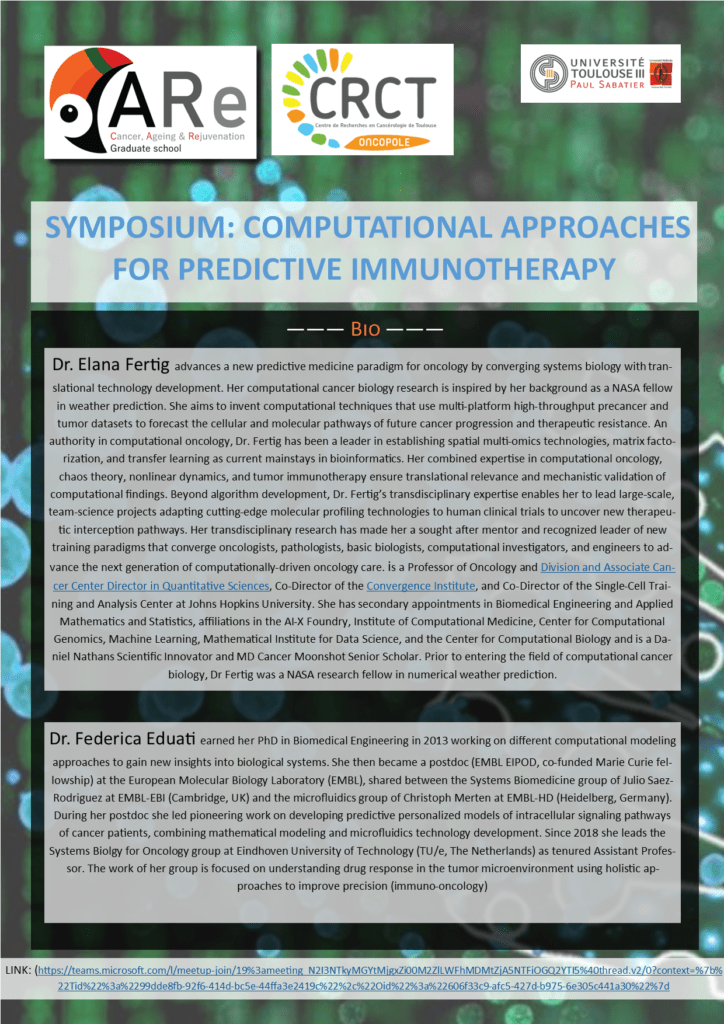
On Thursday December 21st, Dr Elana Fertig and Dr. Federica Eduati are giving a keynote lecture on Computational Sciences at IUCT-Amphitheater from 2pm to 4pm.
Dr Elana Fertig advances a new predictive medicine paradigm for oncology by converging systems biology with translational technology development. Her computational cancer biology research is inspired by her background as a NASA fellow in weather prediction. She aims to invent computational techniques that use multi-platform high-throughput precancer and tumor datasets to forecast the cellular and molecular pathways of future cancer progression and therapeutic resistance. An authority in computational oncology, Dr. Fertig has been a leader in establishing spatial multi-omics technologies, matrix factorization, and transfer learning as current mainstays in bioinformatics. Her combined expertise in computational oncology, chaos theory, nonlinear dynamics, and tumor immunotherapy ensure translational relevance and mechanistic validation of computational findings. Beyond algorithm development, Dr. Fertig’s transdisciplinary expertise enables her to lead large-scale, team-science projects adapting cutting-edge molecular profiling technologies to human clinical trials to uncover new therapeutic interception pathways. Her transdisciplinary research has made her a sought after mentor and recognized leader of new training paradigms that converge oncologists, pathologists, basic biologists, computational investigators, and engineers to advance the next generation of computationally-driven oncology care.
Dr. Fertig is a Professor of Oncology and Division and Associate Cancer Center Director in Quantitative Sciences, Co-Director of the Convergence Institute, and Co-Director of the Single-Cell Training and Analysis Center at Johns Hopkins University. She has secondary appointments in Biomedical Engineering and Applied Mathematics and Statistics, affiliations in the AI-X Foundry, Institute of Computational Medicine, Center for Computational Genomics, Machine Learning, Mathematical Institute for Data Science, and the Center for Computational Biology and is a Daniel Nathans Scientific Innovator and MD Cancer Moonshot Senior Scholar. Prior to entering the field of computational cancer biology, Dr Fertig was a NASA research fellow in numerical weather prediction.
Dr. Fertig’s research is featured in over numerous peer-reviewed publications, R/Bioconductor packages, and competitive funding portfolio as PI and co-I. Notably, she led the team that won the HPN-DREAM8 algorithm to predict phospho-proteomic trajectories from therapeutic response in cancer cells and was elected to the College of Fellows American Institute for Medical and Biomedical Engineering (AIMBE) in 2022. She serves on the editorial boards of PLoS Computational Biology, Cell Systems, ImmunoInformatics, and Cancer Research Communications.
Dr. Federica Eduati earned her PhD in Biomedical Engineering in 2013 working on different computational modeling approaches to gain new insights into biological systems. She then became a postdoc (EMBL EIPOD, co-funded Marie Curie fellowship) at the European Molecular Biology Laboratory (EMBL), shared between the Systems Biomedicine group of Julio Saez-Rodriguez at EMBL-EBI (Cambridge, UK) and the microfluidics group of Christoph Merten at EMBL-HD (Heidelberg, Germany). During her postdoc she led pioneering work on developing predictive personalized models of intracellular signaling pathways of cancer patients, combining mathematical modeling and microfluidics technology development. Since 2018 she leads the Systems Biolgy for Oncology group at Eindhoven University of Technology (TU/e, The Netherlands) as tenured Assistant Professor. The work of her group is focused on understanding drug response in the tumor microenvironment using holistic approaches to improve precision (immuno)oncology.
Tumors are dynamic ecosystems shaped by a multitude of interacting molecules and cells. The heterogeneity observed in patients’ tumor development and treatment responses can be attributed to diversity in the underlying regulatory networks. In this presentation, I will illustrate how mathematical models can provide a nuanced description and understanding of the intricate relationship between a tumor’s composition and its behavior. Using mathematical models, we integrate general prior knowledge on possible interactions and patient-specific data to gain a mechanistic understanding of resistance/response to treatment in individual patients. This approach holds the potential to improve the way we personalize treatment based on patient’s molecular characteristic.
Title of the conference: « Computational modelling of the tumor and its microenvironment for precision oncology »
Abstract: Tumors are dynamic ecosystems shaped by a multitude of interacting molecules and cells. The heterogeneity observed in patients’ tumor development and treatment responses can be attributed to diversity in the underlying regulatory networks. In this presentation, I will illustrate how mathematical models can provide a nuanced description and understanding of the intricate relationship between a tumor’s composition and its behavior. Using mathematical models, we integrate general prior knowledge on possible interactions and patient-specific data to gain a mechanistic understanding of resistance/response to treatment in individual patients. This approach holds the potential to improve the way we personalize treatment based on patient’s molecular characteristic.
Please join online here.
